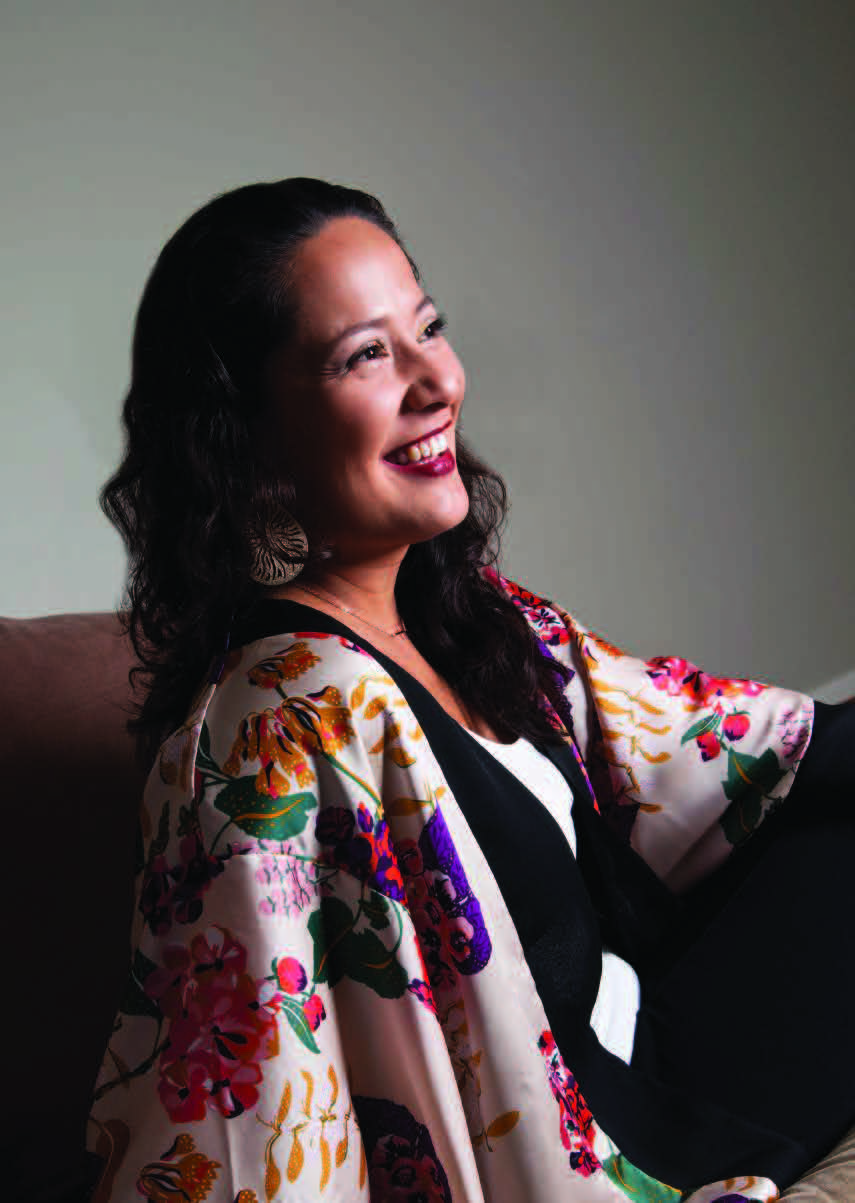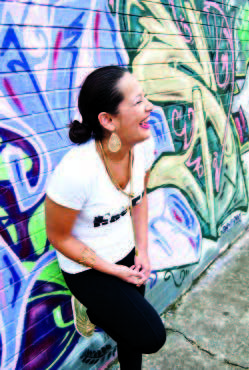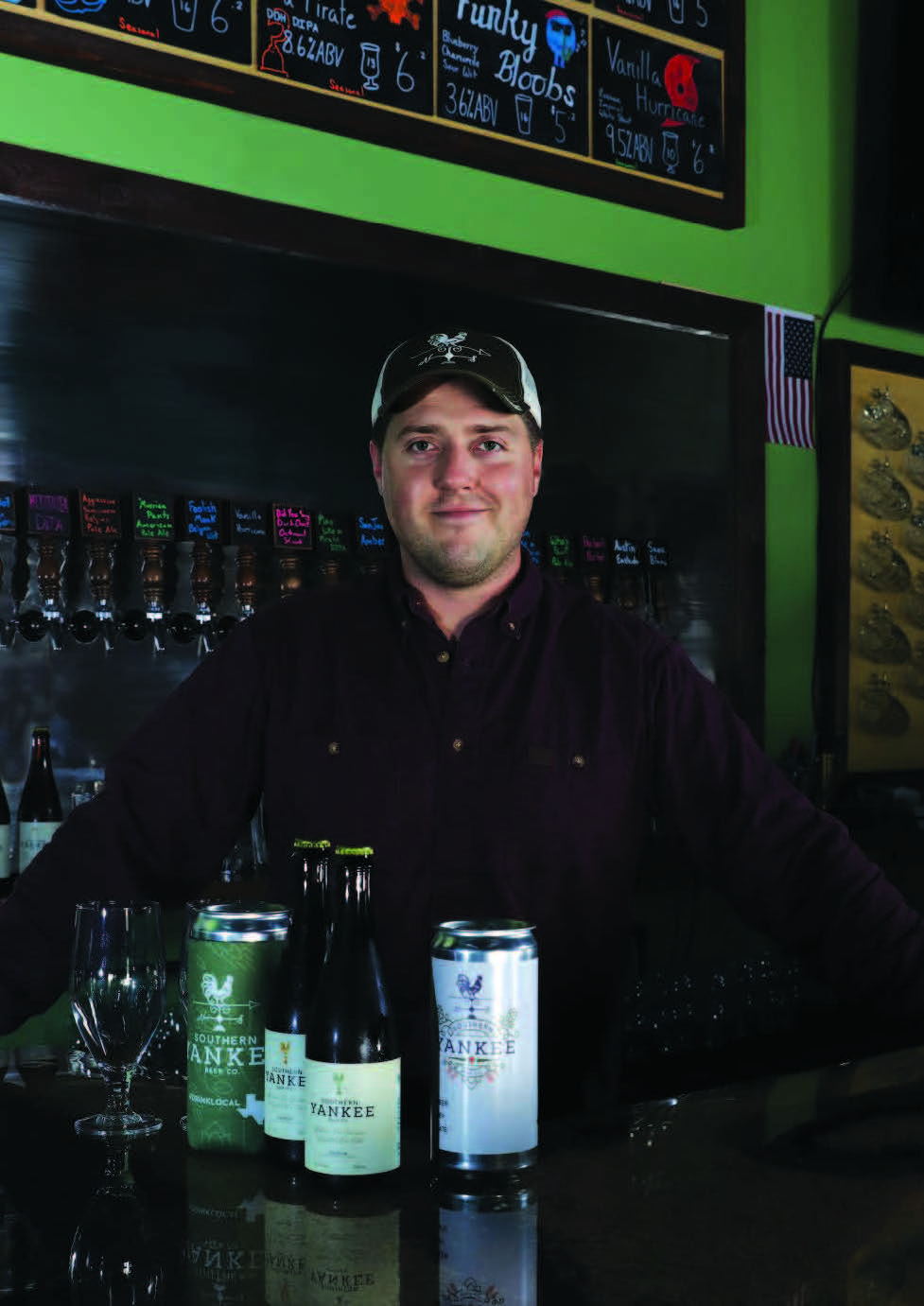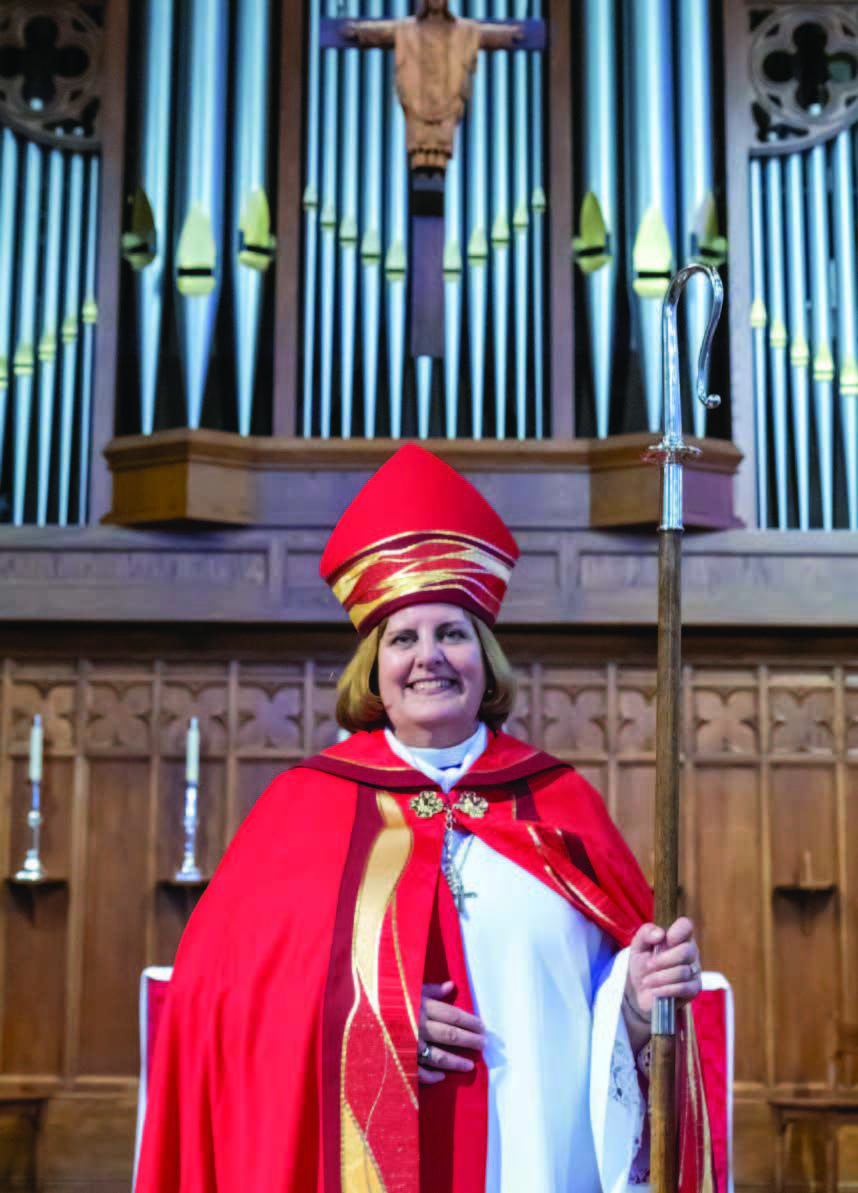2nd Act

F. Scott Fitzgerald was wrong. There are second acts in American lives — and third and fourth acts, too. Increasing numbers of workers are bowing out of Act I to pursue careers that offer more fulfillment and a greater sense of well-being.
 In her role as a senior financial analyst at a large retail company, LaTisha Cotto MBA ’14 would crunch numbers from sunrise to sunset. She ate lunch at her desk, usually fast food. Work often spilled over into the weekends, but she didn’t complain. After all, she was taking home a six-figure salary and she liked the prestige of her role.
In her role as a senior financial analyst at a large retail company, LaTisha Cotto MBA ’14 would crunch numbers from sunrise to sunset. She ate lunch at her desk, usually fast food. Work often spilled over into the weekends, but she didn’t complain. After all, she was taking home a six-figure salary and she liked the prestige of her role.
Once, when Cotto ran herself ragged and came down with bronchitis, she still went in to work. It was end of quarter and, her boss said, “all hands on deck.” Then, Cotto started having serious stomach pains and feeling more exhausted than usual. Her doctor gave her the news. She’d developed ulcerative colitis, an autoimmune disorder affecting the gastrointestinal system. It’s a condition that’s exacerbated by a poor diet and stress.
“That really made me stop and say ‘What am I doing to myself?’” says Cotto, who’s now a life coach and motivational speaker. “I was so busy with work that I couldn’t nourish myself properly.” Cotto started to reevaluate her career goals. “I realized I wasn’t feeling a sense of deep fulfillment,” she says.
Cotto, who years earlier had worked as a career development coach, quit her corporate job in 2016 to become a full-time life coach. She took a sizable pay cut, but now she’s in her element, creating podcasts and helping her clients have “aha moments” about their own life goals. “This is where my heart is,” she says, “helping people.”
The Rice alumna isn’t alone in reconsidering a high-paying but high-stress job. More and more workers, and especially millennials, are choosing jobs that are less lucrative, but more personally fulfilling and conducive to their wellbeing. The more meaningful and more flexible work also gives people more time with family and friends. It’s a trend that’s evolved along with the explosion of the gig economy, and as millennials continue to push for jobs that do good and offer a more optimal work-life balance.
The ability to choose
 By the end of July 2018, an unusually high 2.4 percent of working Americans had voluntarily quit their jobs, according to the U.S. Bureau of Labor Statistics. The voluntary quit rate was last that high in April 2001. And it’s only ticked down slightly in 2019, to 2.3 percent recently.
By the end of July 2018, an unusually high 2.4 percent of working Americans had voluntarily quit their jobs, according to the U.S. Bureau of Labor Statistics. The voluntary quit rate was last that high in April 2001. And it’s only ticked down slightly in 2019, to 2.3 percent recently.
The higher people climb on the corporate ladder, the more that number increases. Jing Zhou, a management professor at Rice Business, found in a recent study that 30 percent of top corporate employees leave their firms within one year. Meanwhile, a Deloitte survey showed that 43 percent of millennials planned to quit their job within two years. One contributing factor? As the global wellness industry has exploded, more people are recognizing the ways their lifestyle choices — including their choice of career — impact their health.
Yet workplace stress still runs rampant. The consulting firm Korn Ferry found that around two-thirds of professionals say their stress levels at work are greater than they were five years ago. For 76 percent, stress has had a negative impact on their personal relationships. Chronic stress has been linked to health issues including depression, digestive issues and heart disease, while new research has increasingly linked high stress to compromised gut health, which can lead to mental and physical illnesses.
Cotto is happier since leaving her high-stress job, she says, and her ulcerative colitis has gone into remission. Her new job has also given her more time to spend with her daughter. “When you’re working for a company, you don’t really have lot of wiggle room to say, ‘You know, I really don’t want to work on this project,’” she says. “There’s something to be said about having the ability to choose.”
Zhou agrees; the research backs this up. “In general, when people have autonomy and they do what they love, they’re happier,” she says. Autonomous workers are allowed to make their own decisions: they contribute ideas and work with limited supervision. They feel trusted. And this freedom, along with the ability to shape one’s environment, helps workers perform at their highest level.
Researchers from the University of Birmingham recently studied data on 20,000 workers and determined that the higher an employee’s autonomy, the greater their job satisfaction and well-being. Women appreciated autonomy more when it related to scheduling and their work location, while men liked autonomy related to the pace of their work and how they allocated tasks.
Playing the long game
One reason workers are feeling emboldened to quit unfulfilling jobs is that, unlike our parents’ generation, companies no longer offer lifetime, secure employment. “The traditional ‘company man’ model no longer works. It’s been a gradual shift,” Zhou says. Now, instead of thinking about what skills their next company will want, “people are saying, I’ll just start my own,” she says.
 That was certainly the case for Alex Porter, MBA ’18, who left a career in oil and gas to get his MBA at Rice Business, then started a brewery with his family. He’s now the managing owner of Southern Yankee Beer Company in Spring, which opened last fall.
That was certainly the case for Alex Porter, MBA ’18, who left a career in oil and gas to get his MBA at Rice Business, then started a brewery with his family. He’s now the managing owner of Southern Yankee Beer Company in Spring, which opened last fall.
Porter spent eight years in oil and gas construction, traveling the world to far-flung destinations like Singapore and Australia and overseeing billion-dollar jobs. Although he enjoyed the work, ultimately he became frustrated with the way his company was managed. “The corporate culture was really poisonous,” Porter says. “There was a lack of independence. I needed to make a change.”
As a child, Porter had watched his father homebrew in their garage. Eventually, Porter pitched in, and he loved it. Around the time he started to feel disillusioned with his job, his sister, Sydney Porter, was graduating from college. “We sent her to brew school,” Porter says. Then, he enrolled at Rice Business with the goal of learning how to run a small business. During his second year in the MBA program, he was laid off.
“I thought to myself, ‘I can go recruit into some consulting job and save money for a brewery, or I can bootstrap it right now.’” He chose the latter.
Porter’s father invested in the brewery and works on strategic planning, while Sydney is brew master. The brewery broke even in its first month, Porter says, and became profitable shortly thereafter. Since then, they’ve added food service and additional employees, and they’re considering a second location. Porter works more hours now as an entrepreneur, and his take-home pay has shrunk, but he doesn’t mind.
“I’m making way less money, but I’m happier,” he says. “Working with family is great and getting to drink beer at work is nice.”
A corporate job might offer safety, Porter adds, but “with safety comes complacency.” He’s confident that in a few years he’ll have a pay scale similar to what he once had. “But it will all be from my own company,” Porter says. “I’m playing the long game.”
A more fulfilling career
 For alumna Susan Brown Snook ’85, leaving behind a career as a CPA to become an Episcopalian minister was less about parting with a stressful work environment and more about following her calling. She grew up in the Episcopal Church and was active in her local church throughout high school. In college, she studied English. At the time, she didn’t realize that becoming a minister was a career option, she says.
For alumna Susan Brown Snook ’85, leaving behind a career as a CPA to become an Episcopalian minister was less about parting with a stressful work environment and more about following her calling. She grew up in the Episcopal Church and was active in her local church throughout high school. In college, she studied English. At the time, she didn’t realize that becoming a minister was a career option, she says.
Her CPA career spanned a decade. “I worked hard and I was promoted early,” she says. “I was successful. But, I became conscious of not being happy. I wasn’t all that interested in what I was doing.” Having her first child was a wake-up call.
“It made me aware of a whole side of myself, my life, my hopes for my future that I had been neglecting when I was concentrating too hard on just being successful in my career,” says Snook.
So she started volunteering at her church, and then returned to school to get her Master of Divinity degree. She was ordained as a priest, and recently became the first woman to be elected Episcopal Bishop of San Diego.
“I get to call people together around a vision of transforming the world with God’s love, and that’s the meaning of life to me and what I love to do,” Snook says. “I’m still a successful, professional woman. I just moved into a field that’s more fulfilling to me.”
Smart business decisions
Alumni say their move to more personally fulfilling careers hasn’t come without some bumps in the road. They’ve had to shift their mindset and make lifestyle changes and sacrifices.
Cotto gave up frequent Door Dash orders from her favorite Peruvian restaurant and started preparing more meals at home. She parted ways with the Starbucks barista who knew her daily order by heart.
As a solopreneur, Cotto is in charge of every aspect of her business, from marketing to sales to invoicing, which can be tiring. “Entrepreneurship is not for the faint of heart,” she says. “It’s been an adjustment.”
Lessons learned at Rice Business have helped with that adjustment. For Cotto, it was the entrepreneurial classes she took. It’s been the same for Snook, who says an understanding of finance and accounting has been extremely useful for the work she’s done in the church. Cotto adds that for entrepreneurs pursuing their passion, it’s key to always treat the endeavor like a business.
Zhou says that many people start their own business with good intentions as they seek out greater flexibility and autonomy. But they also need to make sure they’re making smart business decisions, she says.
“You need to identify customer needs, create value for customers that other existing businesses cannot provide them with, and then you fill in the holes and create a profit,” Zhou says. “If a business is not successful, it’s even more stressful working for yourself. You still need to work hard.”
Lessons for employers
For employers, there are important lessons to learn from workers leaving corporate America. More companies must respect and nurture employee creativity, Zhou says, and realize that doing so will require a certain amount of risk taking.
“In general, workplaces are set up to be efficient,” Zhou says, “and they don’t encourage employees to express creativity. Companies need to adjust their expectations.”
A worker’s immediate supervisor plays a huge role. If he or she is inspiring and embraces creativity, that will trickle down to employees. If not, these leaders should be taught how to foster creativity, says Zhou.
These lessons haven’t been lost on corporate America. Companies like Google have started to embrace autonomy, giving employees time to pitch and work on their own projects. Zappos introduced a new self-management system, Holacracy, while Southwest Airlines encourages its employees to express themselves creatively. One video of a flight attendant rapping the plane’s safety information went viral.
Cotto says she’s hearing more and more of her clients, millennials especially, ask questions like “Am I happy at work? What is it that I really want?” and, “Is this job really helping me make a mark?” A lot of people simply stay where they are, unhappy, because they’re unaware of the options available to them, Cotto says. She asks clients to create a Pinterest board, pinning images that appeal to them, then looking for patterns and themes.
“I hear a lot of ‘shoulds’ with my clients,” she says. “People create an entire career on what their mom told them they should do because it’s a safe and secure job. Or, they don’t act on longings they’ve had.” For many, clues abound about what they really want to be doing — but those hints go unheeded. “Most of the time you’re just too busy to pay attention,” Cotto says.
Deborah Lynn Blumberg is a Houston-based freelance writer specializing in health and wellness and business and finance.


